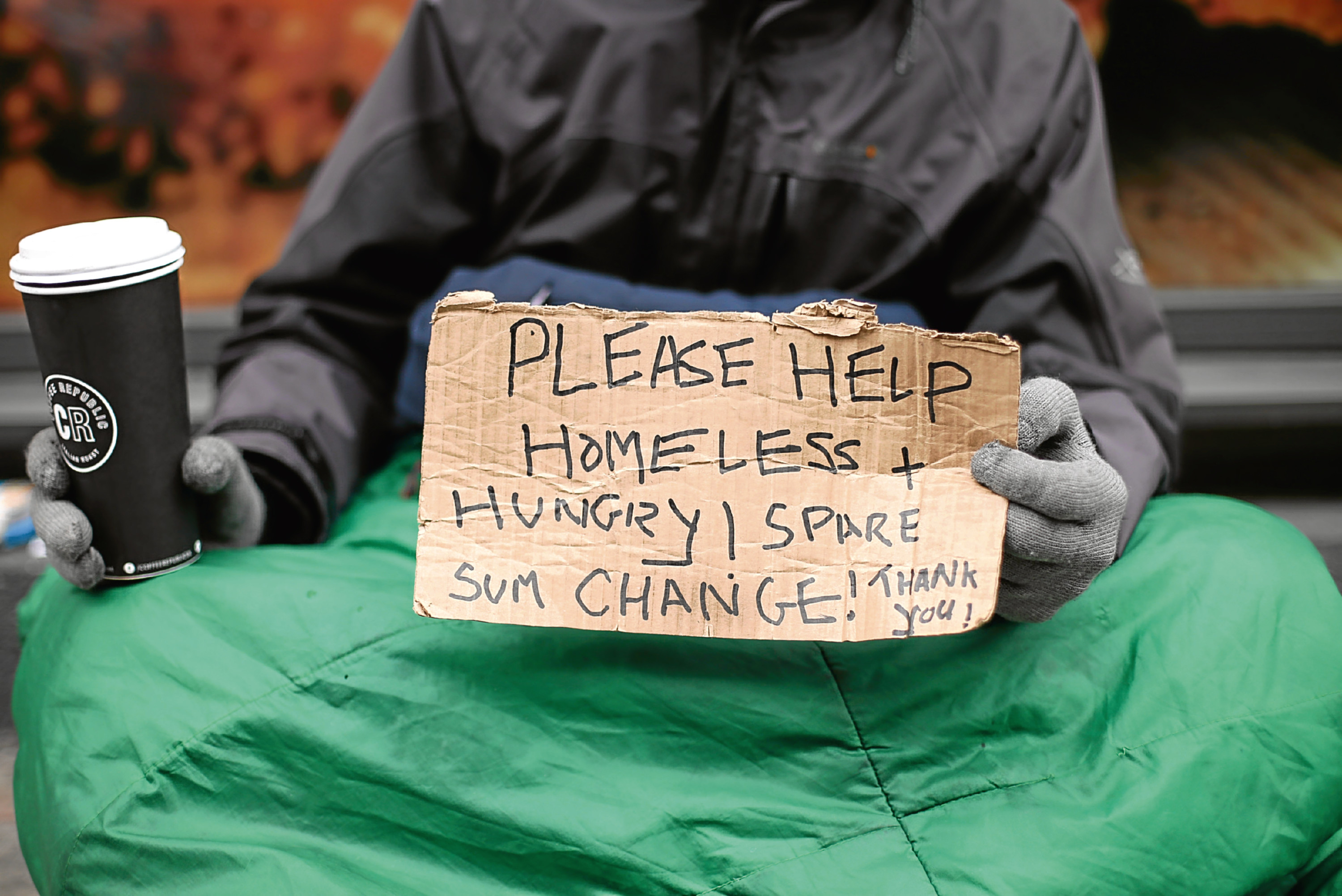
GLEN and I have a fair bit in common – particularly a love of travel and an aptitude for hard work.
He’s enthusiastic, thoughtful and funny, although his confidence has clearly taken a knock in recent times.
With more than 20 years’ experience at blue chip organisations, the streets were the last place he expected to end up.
But a tough struggle with depression and linked alcohol problems eventually came to a head and he found himself homeless in London.
For Scott, it was the condemnation of his flat following health and safety checks that led to him sleeping rough.
Like Glenn, in the lonely nights he would remind himself who he was and what he was capable of.
Both of them are Scottish, which is not unusual as Scots are over-represented in the capital’s UK-born homeless population.
Among the most entrenched rough sleepers in London, they are also likely to spend longer on the streets before accessing services.
According to 2015 figures from the Combined Homelessness and Information Network, which records information about London’s street population, 37% of Scottish clients have been rough sleeping across a minimum of two consecutive years.
The figure for UK clients as a whole – 26% – is significantly lower.
Happily, Glenn and Scott are now getting back on their feet thanks to Borderline, a charity which specifically helps homeless Scots in London.
It employs a Scottish outreach worker, Alex Lavin, to whom people are referred from around the capital.
A Scot himself, he gets to know them and finds out what kind of help they need, which could be paying for a ticket home to Scotland or securing a place in a hostel.
The particular difficulty he faces is having to prove a local link to access services, which are stretched as it is and so limited to people with a connection to the area.
For the men – and they are predominantly men – not from London, this is much harder, even though they may have been sleeping in the same spot for months.
What’s key is that the support doesn’t stop there.
Borderline works closely with ScotsCare, which helps Scots in London more widely, including people coming out of homelessness.
It can provide access to a training course or basic flat furnishings, for example, depending on an individual’s circumstances.
In the case of Billy, also a Scot who was abused as a child and suffers from post-traumatic stress disorder, it is funding psychotherapy sessions.
This has enabled him to connect with his daughter after more than 13 years.
Learning about these men, I’m reminded of the phrase attributed to English martyr John Bradford – “There but for the grace of God, go I”.
I expect many people reading this will think homelessness could never happen to them.
I’ll admit that previously I probably would have felt very much the same.
But what their stories show is that it doesn’t take much for a person to lose their way. Homelessness is not something that only happens to other people.
It could happen to your father, your brother, your mother, your sister; it could happen to you.
There’s also an ongoing issue of stigma.
In the days when he was sleeping in Hyde Park, cinemas, on benches by the Thames, Terminal 3 at Heathrow Airport – wherever he could find – Glenn says he felt a total sense of isolation, that nobody cared if he lived or died.
But he also describes feeling embarrassed.
“How did I get here? What did I do wrong?” he would ask.
Scott similarly remembers being “disgusted” when he looked in the mirror for the first time after moving into supported accommodation.
It’s sad that in 21st Century Britain homelessness remains a problem and can still invoke such feelings of shame.
Of course not everyone can help at the coal face like Alex.
But as a nation – at the very least – we owe it to the other Glenns, Scotts and Billys out there not to be judgemental.
Rather, let’s show some compassion.

Enjoy the convenience of having The Sunday Post delivered as a digital ePaper straight to your smartphone, tablet or computer.
Subscribe for only £5.49 a month and enjoy all the benefits of the printed paper as a digital replica.
Subscribe